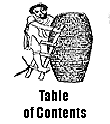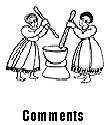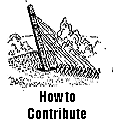
|
Dorro ManeKya Back in the prehistoric days, when time was not a sparse commodity, I spent my mornings in preschool centers and then indulged in the long afternoons to come up with some mischief for the day. My parents were off working and the older siblings were supposedly getting educated at their respective schools. This left me and Etye Kelemwa at our humble home in Doro ManeKya. Etye Kelemwa was the versatile hired help who would cook, do the laundry, clean the place, feed the family, balance the check books… she was a pretty busy woman. Idling around her equated to begging for a chore and worse yet a reminder that I should go inside and practice my ha, hu and ABC’s. Except for the days where I accompanied her to the gullit to pick up last minute items, we dwelt in parallel universes and we both felt that this was a pretty safe arrangement. Now the location of our gullit in Doro ManeKya and next to ye sost KuTir autobus mazoria was yet another civil engineering faux pas. As good things often come out of most mishap, this setting provided the niche for some young entrepreneurs to try their latest sleight of hand on emammas and gasha&eaucte;s who were not very good with handling their money. Ergo, in this neck of the woods, it was not unusual for the local monotone to be disrupted by a sudden desperate squeal of “Leba, leba, ere a’nd belut, leba leba, ere zerefegn, gedelegn, leba, leba…”. As baseball is to Americans, apprehending the thief and perhaps even bringing him to justice, should he still be alive, was the reuniting event for Doro ManeKyans. Often the leba in question was not a budding Al Capone but rather a small, desperate looking young chap who unfortunately has underestimated his vigilant surrounding - a grave mistake. In the first few minutes of a chase, it will require eagle vision and fluidity to decipher the good from the bad as the mob plops out onto the street in this moment of catharsis. As the saying ye wedeKe g’nd misar y’bezabetal, there was never a shortage of vigilantes in our neighborhood. Such declaration of the “Neighborhood Open Season” on the leba de jour soon evolves into a soap opera where the protagonist mutates in front of your very own eyes amid mob confusion. The excess of time in my hands and the need to keep myself occupied in the afternoons soon inspired me to venture off across the street to strike up acquaintance with a ye sefer goremsa named Amsalu. He became my older brother for the afternoons and I sort of filled his void for unconditional admiration and respect. Amsalu, being the woTemsha goremesa of the neighborhood, was the guy in charge of organizing the lean and mean ye sefer kwas buden when kids from afar extended a challenge. He was often called upon when the merciless stoning of a stray dog by the local boys was not persuasive enough to drive the poor beast away to the adjacent towns. He led the rowdiest Hoya Hoyaes during demera . I luxuriated over his company and managed to elusively mingle into his grown up world, which was a realized fantasy for a kid of my age. One Thursday afternoon, I was triumphantly flaunting the gold star I earned for penmanship when yet another desperate squeal of “Leba, leba” came through from the infamous gullit and mazoria corner. Down the trail, I saw the apparent perpetrator. He was a young chap running for his life, holding his sandals in one hand and what appeared to be a lady’s purse in the other. He was closely followed by a boisterous herd of playful boys. Then came the grown up vigilantes brandishing their sticks. Soon into the chase, the young man started to widen his gap from his entourage in a way of saying all right boys, the warm up round is now over. I could sense Amsalu getting restless at the thought of taking up the gauntlet. He hurriedly walked me back to my home, slipped off his sandals and took off after the disappearing mob. An hour passed then two and three but there was no sight of Amsalu. Most of the neighbors returned from the chase without much triumphant tales to share. Soon my parents and siblings were returning home and I rushed inside to show off my gold star and do more of the alphabets. During dinner and for the remainder of the evening, I continued to wonder if the leba led Amsalu into a trap or if he got ambushed in the woods. I tried to comfort myself in the knowledge that he could hold his own under any circumstances. After all, he was my hero. The following afternoon, I was delighted to find him hanging out by his shack as if nothing has happened. I waited to hear the courageous acts and juicy details from the day before but he was not offering much. I finally mustered up the courage to ask what they did with the perpetrator. He nonchalantly explained that he recovered the purse and most of the belonging but he couldn’t apprehend the villain. Nonetheless he managed to scare the living souls out of the kid and he declared that this was actually better than dragging the kid to jail. In my childish innocence I nodded in full agreement although it would take several more years before I could learn to appreciate the full impact of his benevolence. Over the ensuing months, I came to learn more about the leba that got away. It turns out, despite the heart warming encouragement from the bystanders, most in the crowd gave up and soon it became a neck or nothing chase between the leba and Amsalu. The offender was not letting up despite stumbling over a rock and slicing his foot open. They jumped over fences, skipped over the potholes, cut across the fields and glided over the streams. Up the hill and then down another and then even more. Then the kid started to tire out. He dropped the purse and his sandals and continued to run. Amsalu picked up the purse but didn’t let up on the chase. Now the kid was panting heavily and the pain and tingling from his foot was starting to slow him down. Amsalu could see that the kid’s foot was socked in blood as he was squirting away wailing with his hand clenched on to his chest. Few minutes more into the drama, they came across a bridge and the kid paused to contemplate jumping over into the water as a way of a final escape. Amsalu closed up on him even more and the kid continued to limp away in desperation. Soon the chase slowed down to jog and then to a shuffle. Judging that the kid has come to end of his rope, Amsalu slowed down and slumped over in apparent exhaustion. Noticing this divine intervention and somewhat confused by the sudden turn of events, the kid mustered up his strength and scurried away into a nearby alley. Amsalu walked back home with the purse as his only trophy. He sincerely believed that he had done the right thing and justice was served. Churchill Godana Several years later, my cousin came home and declared that he has lost his wallet. Apparently it has been snatched while he was wrestiling the crowd to get onto the bus somewhere on Churchill Godana. In the following days, he trundled from one police station to another with the hope of recovering his driver’s license and some precious family portraits. He finally got lucky with his search but he was informed that his wallet can not yet be released since the thief was awaiting trial and evidence couldn’t be released without the judge’s orders. The thief, he was informed, was a 14 year old “ye menged lij”. He was apparently seen slipping the wallet away and as my cousin’s bus drove on, the vigilante crowd beat this child silly until an officer showed up to rescue him and take him to the local police station. My cousin waited for months and even went through ye zemed TebeKa to recover his wallet and pictures, but to no avail. The court date kept on getting postponed for one reason or another. Finally, a year after the incident, he got a call from a deputy to inform him that his wallet could now be picked up from the police station. It turns out that the wallet-snatching child died of “some complications” in the jail and the evidence was no longer needed. A beaten up wallet was returned sans pictures, driver’s license or money. I concurred with my cousin that no moment of lucidity could ever squeeze any hint of justice or humanity out of this virulent mishap. BigCity, America Decades and miles removed from Doro ManeKya, I met Sofi who was going to college in the West Coast and soon found myself molding into the role of a mentor. For unclear reasons, I played cupid and set her up with a pleasant Ethiopian gentleman whom I thought was a responsible person with decent character. For the following several weeks, I couldn’t hear enough of my greatness from both parties. As the saying gud saysemma meskerem ayTebam, one Monday morning I received a frantic call from her friend Mesfin. Amidst undulating emotions, he related to me how a festive evening that started with a celebration of his twenty-first birthday turned sour when he slammed into a parked truck. Though he suffered only minor injuries, Sofi had to be extracted out from the totaled vehicle and she has remained unresponsive ever since. I joined him at the hospital and we raced to the intensive care unit dodging gurneys and other visitors. In my rush to confront reality, the endless white corridors and their contents passed by in a surreal blur. At the ICU front desk we identified ourselves as close family friends and squeezed past doctors and nurses to get to her room. My hope for a miracle was soon dismantled with the horrific site of her limp body surrounded by machines, tubes and wires which further accentuated the seriousness of her condition. The overhead monitor was the only sign of life with frequent beeps ushering her heartbeats while other lines scrolled tracing her blood pressure and respiration. The nurse updated us that Sofi apparently incurred a head bleed on impact and the clot was promptly evacuated on her arrival to the hospital. She is presently in a state of coma and only time was to provide the only tincture of hope for this young lady. Mesfin kneeled by the bedside side soaking her hands with tears as I stood next to him entangled in disbelief and desperation. The next couple of days were filled with the lacerating visions of her being dragged out of the car and the surgeons drilling a hole in her head. I prayed to be relieved from this albatross and made a promise to myself not to ever play cupid. Mesfin was not doing any better. Immersed in a quagmire of guilt, anger and pain, he insisted on camping out by her bedside despite our effort to relieve him. The following night, I was woken up his call from the hospital. Mesfin’s was fizzling with excitement He exuberantly shared with me the news that she has started making some purposeful movements on her own. The next morning I walked into the ICU to learn that my prayers have been heard. With him cheering her on the side, she was livelier than before and perhaps even a bit feisty. Later that morning she had most of her tubes and wires removed and started a slow transition to appearing her old charming self. She couldn’t remember much of what happened and it took some time to explain her shaved head, fractured shoulder and leg - we left the unnecessary details for a later day. She was destined for several days of rehabilitation before she could be released. Mesfin looked like a poor soul who just evaded the gallows. Hospital Lobby On our way out, we passed by a large group of family members that were being escorted towards the emergency room. Few teenagers have tired to sneak away for a quick car ride that culminated in a deadly accident. This time two lives got claimed without much warning. Parents of all parties were being taken to the ER to identify the bodies. I sneaked a glance at Mesfin as he was trying to fight back his tears. He uttered “We really were lucky, weren’t we”. It was a quiet ride to his dorm. The Edge of a Cliff On my drive home, I continued to think about the family we walked by in the hospital lobby. Surely, they would have loved to see a different outcome to the accident. But for unclear reasons life awarded the capital punishment and there was no room for appeal. Sometimes it is much better to be almost caught in the act of a crime than to actually be caught and to be prosecuted. The near escape often affords that second chance and the opportunity to reflect and perhaps even extract lasting lessons out of the circumstances without incurring poignant societal labels and non-healing wounds. However once prosecuted and labeled with the scarlet letter, be it in the form of dying in an accident or ending up in jail for a petty crime or even contracting a deadly disease, now the individual has gone beyond the point of no return and not many redeeming qualities may emerge from such an experience. Granted, some crimes will still need to be addressed by the criminal justice system. But most will doubtfully benefit from the reckless labeling or trip to the gallows as evidenced by the loads of repeat offenders that crowd the countless jails in our society. In a way, the impact of life’s lessons is proportional to how close we get pushed to the edge of a cliff without having to go over it. After all, it is the exhilaration, the pain, the anger, the feeling of betrayal, the desperation, the transient anguish and hopelessness that colorfully imprint in us the lasting lessons from most life altering experiences. However, once we get pushed over the edge of a cliff, our tenuous hold to humanity, hope and redemption precipitously declines and the outcome of such is often ominous. |

|

|

|

|

|
| © Copyright SELEDA Ethiopia, January 2001. All Rights Reserved. |
